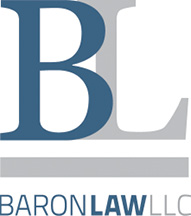Sponsored
Will vs. Trust: Which Do I Need?
by Dan A. Baron, Baron Law LLC
Both trusts and wills are useful estate- planning tools, and they often work together to create a complete estate plan. While both wills and trusts “tell” others who will receive your assets, they do it in different ways.

What is a Will?
A will is a simple document that allows you to: name guardians for your children and/or pets; designate where your assets go after you pass; and appoint someone to be the executor of your estate. The creator of the will, called a testator, appoints an executor to handle their affairs after they pass. Even with this document and the appointed executor, you do not have complete control over the distribution of your assets because the will has to go through a probate process after you pass.
What Is a Trust?
A trust is a more comprehensive legal document that gives you greater control over when and how your assets are distributed because you can minimize or avoid the probate court process entirely. There are several types of trusts that can be created according to your personal goals. The creator of the trust, called a grantor, appoints a trustee to distribute the assets to the trust’s beneficiaries according to the guidelines specified in the trust.
Main Differences Between a Will and Trust
1. Timing
A big difference between wills and trusts is how and when they take effect.
A will goes into effect after death, while a trust takes effect as soon as it is created. The trust may be used to distribute assets before death, at death or afterwards.
2. Probate
Only a will passes through probate. In probate, a court ensures the will is valid and oversees the administration of the will. If the court authenticates your will, it will pass through probate reaching your intended beneficiaries. If the will is not authenticated, your money might end up with the state, instead of your loved ones. The average time to administer a will through probate is 14 months and the process requires a number of fees, on average 5-7% of the value of the estate or greater. Courts do not need to oversee the distribution of a trust, which can save you a significant amount of time and money.
3. Privacy
Probate is part of the public record, meaning anyone may have access to your will, a list of your assets and their value and a list of your beneficiaries. A trust provides privacy because the court record will only list the trust; not the details in the trust.
4. Taxes
Trusts can reduce estate taxes and protect your estate from creditors. The federal estate tax ranges from rates of 18-40%. A will does not avoid estate taxes.
Deciding Factors: Do I Need a Will, Trust or Both?
You can have both a will and trust. An estate planning attorney can help you select the right type of each that will work together to accomplish your goals. If you have children under the age of 18, you will need a will to specify their guardians in the event of your death. You can then discuss with the attorney whether a will, trust or both are the best way to manage, preserve and distribute your assets.
In most cases, a comprehensive estate plan includes a pour-over will and living trust. A pour-over will (versus a last will) is designed to work together with your trust and acts as a backup plan to ensure all of our assets are directed into your trust.
Steps To Establish Your Will and Trust
While estate planning usually takes the form of a will, trust or both, there is no one-size-fits-all solution. A will and trust attorney will help you determine the right strategy for your family. When preparing to meet with a will and trust attorney, it’s best to:
Identify your goals. Is your focus on protecting assets, providing for loved ones, reducing taxes or all of the above?
List your assets. What possessions, real estate, investments, insurance policies, etc. do you currently have in your name?
Talk with your loved ones. Are they aligned to your choices regarding guardianship, administration or management of your assets?
For more information or to learn more about estate and trust planning services, contact Baron Law at 216-573-3723 for a free complimentary consultation. Additionally, please feel free to reach me at dan@baronlawcleveland.com.

Sponsored By
Baron Law LLC
Crowne Centre, Suite #600
5005 Rockside Road
Independence, Ohio 44131
216-573-3723
www.baronlawcleveland.com
Opinions and claims expressed above are those of the author and do not necessarily reflect those of ScripType Publishing.

